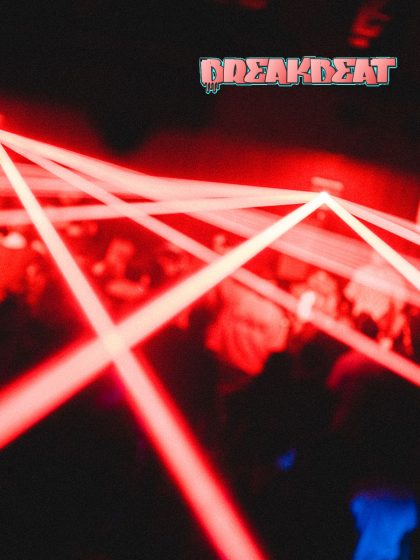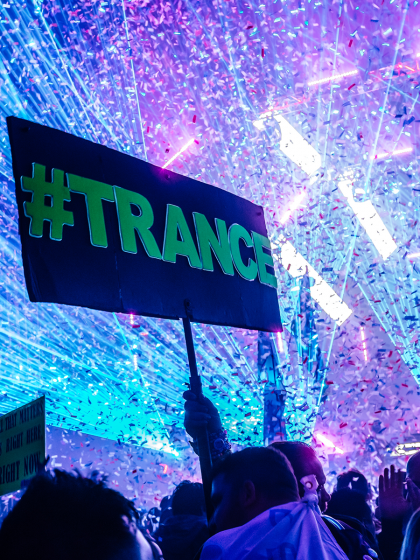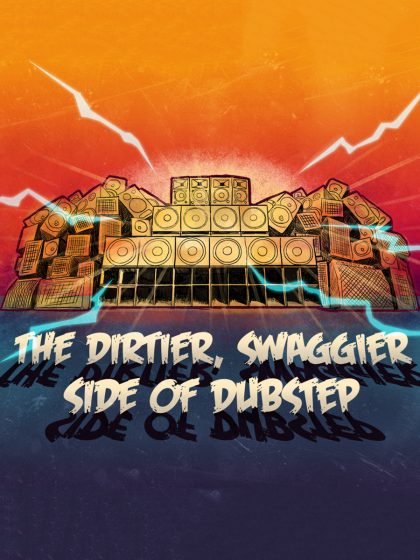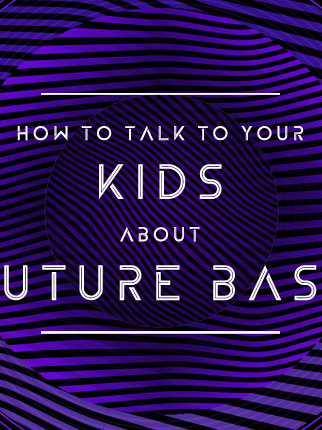How to Talk to Your Kids About G-house
It’s 1993, and “gangster rap” is enough of a threat to still have quotation marks around it. From Long Beach to Long Island, a soap opera is unfolding in the streets between some of rap’s most dangerous egos. Notorious B.I.G., Tupac and Dr. Dre all mean-mug moms from grocery magazine racks as the headlines blare the latest coastal feuds. Suburban kids bump “What’s My Name” and “Nuthin’ but a ‘G’ Thang” in the parking lot after school and before you can blink, it’s splayed out on Dateline with a menacing question: “What ARE your kids listening to?”

Compton rapper Eazy-E is probably the biggest liability to interview around this time, having just departed from N.W.A. in a highly public split that made archenemies of him and fellow member Dr. Dre, marked by Eazy’s diss record. It’s on (Dr Dre) 187um Killa. It was a loaded pistol of a record pointed squarely at the back of Dre’s head, pre-Aftermath and Beats billions, back when a diss track sounded a serious warning. One listen, and it’s clear: We’re light years away from the days of the Sugarhill Gang and the Fat Boys.
“Dre didn’t know NOTHING about doing street music until he hooked up with me anyway,” Eazy sneers on the set of the music video for “Real Muthaphuckkin G’s,” leaning out the open door of a white ‘64 Impala with a head full of curlers. He’s out to drop a bomb on Dre’s credibility by bringing up his early production as a member of electro group World Class Wreckin’ Cru: “He used to do all that techno stuff.” Little did either of them know, two decades later “techno” would stick up gangster rap—no longer dangerous enough for newscasters to surround with quotes—for its best samples and slip stealthily out the backdoor.
This new genre goes by G-house, and it’s the latest in the tenuous relationship between club music and hardcore rap. The sound is known internationally among a small, committed scene where the “G” stands for “gangster” and the artists who produce it stand for club music with attitude: deep bass, sinister vocals, and percussive nods to ghetto house, G-funk and old jack anthems.
“There’s a lot of shit G-house. A lot of badly used a capellas slapped onto a house beat instead of using lyrics wisely and fitting with the music perfectly.”

Today, producers are fearlessly bringing the house element back into the foreground, highlighting it with well-placed rap samples both referential and new. Everyone from Warren G to Notorious B.I.G. to Eazy himself have made appearances on G-house tracks—though unwittingly, if not posthumously—and the tension is still very much there: House fans without a reverence for rap might not get it, and vice versa. But it’s a killer merger to those with a historical love for both—an increasingly likely equation as dance and rap intertwine to become pop.
At the helm of the tricked-out G-house ship is French duo Amine Edge & DANCE, whose 2012 track “Rack City Bitch” turned a sample of Tyga’s song into serious dancefloor ammo. The track appeared on an EP now seminal to G-house’s history: G-House Sauce. The duo approached English producer and label owner Rob Made with the four-track collection featuring samples of Frank Ocean (“Lost”) and Zebra Katz (“Imma Read That Bitch”), all initially intended for Made’s popular Sleazy Deep imprint, which covers a more urban side of what’s considered deep house today (lots of R&B samples, screwed vocals, and slinky basslines). The second Made heard the project, he knew he was hearing something bigger.
“This breed of gangster rap-house came to me in the form of two people—Amine Edge & DANCE,” Made says from his offices in London, giving credit where it’s due. “I thought it was stupid to keep using Sleazy Deep for this genre and felt with the uprise of Sharam Jey’s Bunny Tiger and Kolombo’s LouLou labels, a wave was coming. So I suggested to Amine that we use their EP to start the sub-label, and Sleazy G was born.”
In parallel, the pioneering Frenchmen—who are happy to stake claim as the genre’s founders—were in the midst of launching CUFF records, lauded since its 2014 launch as one of the predominant homes of G-house alongside Sleazy G.

“The idea of CUFF was like Amine Edge & DANCE’s secret Pandora’s box,” says the duo from their latest tour stop. “People go crazy for what we play, but about 90 percent of the tracks are unreleased. People wanted to know what they are, so we created this label to sign our most bomb tracks.”
Fast-forward one year, and CUFF now boasts more than 30 studio gangsters molding the G-house sound—a sentence that would likely have Eazy turning in his grave if it weren’t so damn catchy. But the movement catching on means a sizeable share of fakers, an issue all three producers identified as a major hindrance of the subgenre’s takeoff.
“There’s a lot of shit G-house,” Made says matter-of-factly, “a lot of badly used a capellas slapped onto a house beat instead of using lyrics wisely and fitting with the music perfectly.”
Amine Edge & DANCE take this a step further with a first-and-foremost rule: Producers of the sound must have a background in both rap and house.
“Authentic G-house can be only made by producers who have a passion for hip-hop culture and a strong house background.”
“Authentic G-house can be only made by producers who have a passion for hip-hop culture and a strong house background,” Amine says. “Unfortunately, 90 percent of the producers who pretend to do G-house have neither of these, so most of them are crap, and this genre isn’t respected by the underground scene. So it’s hard for us to keep this shit real when others kill its image. To be honest, we never wanted to promote this genre at all. Too much exposure can kill any genre, so we don’t want the success of EDM, even if it’s massive.”
It’s an argument that’s pervaded the house scene in recent years as well, with the influx of festival artists like Avicii, Steve Aoki, Kaskade and deadmau5 unfolding a battleground where the underground is (or was) at stake. The same issues could plague G-house if dancefloors continue to react so strongly to its dichotomous combination of familiarity and newness.
Thankfully, the genre isn’t yet at the crossroads EDM faced years ago, and it’s a sad notion to think it might not approach it, as less committed producers figure out an easy formula for success. When and if it does blow, a crisis of sample-clearing might be on the horizon, as some of the biggest tracks dip into the rap-hit honeypot.
“I keep thinking Frank Ocean’s gonna call,” Made laughs tensely. “A year in the charts, but still nothing! I think ‘Lost’ should be an iTunes global #1 record, but we don’t release there because we don’t want to rub anyone’s noses in it. We just keep it for the DJs and clubs.”
It’s that underground aesthetic that could either snuff out the genre or raise it up to purist standards. A page from drum & bass’ history would reveal that the latter might be a dead end, or at the very least a less crowded fanbase. Amine Edge & DANCE say they are all for evolution of their own sound, but as for G-house, they’re not pretending to have all the answers: “We have no idea where this is going, and we don’t give a shit.”
Looks like “house music gangsters” might not be such a far-out notion after all.
Writer @Jen_Boyles is part of a Minneapolis-based G-house duo called BunnyMob.





